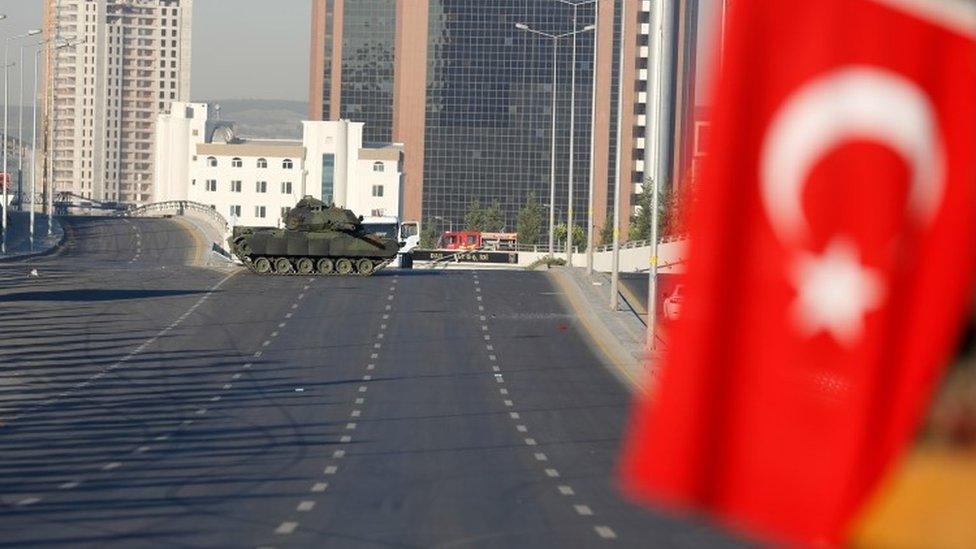Taner Kilic: Amnesty Turkish chair to be released from prison
- Published
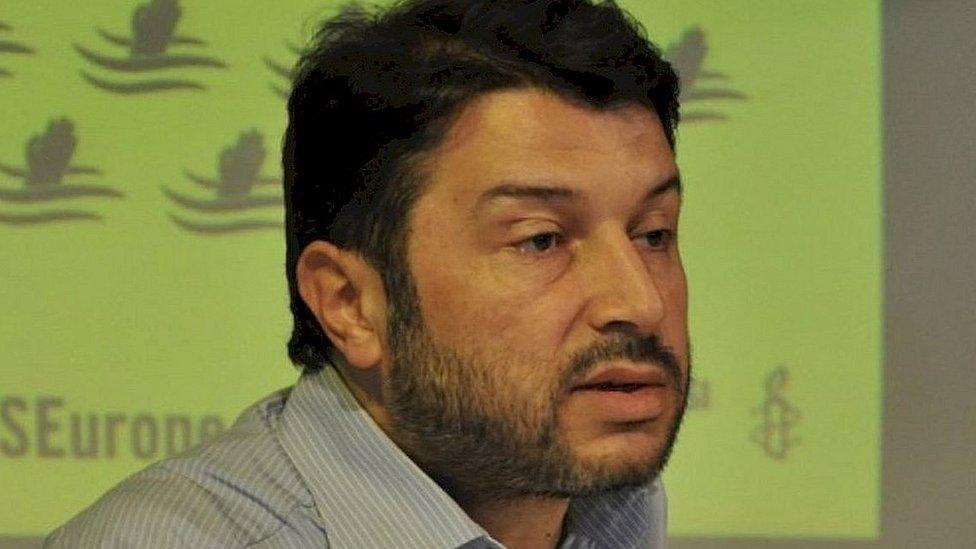
Taner Kilic has spent more than a year in jail on charges Amnesty say are baseless
Turkey has decided to release the national head of Amnesty International after more than a year in prison.
Taner Kilic was arrested in June 2017 on terrorism charges. He is expected to be freed in the coming hours.
He was accused of links to US-based cleric Fethullah Gulen, leader of a banned group which Turkey blames for a failed coup attempt in 2016.
Amnesty has said the charges are an attempt to silence critics of Turkish President Recep Tayyip Erdogan.
While Mr Kilic will be released from prison, the charges against him and other leading human rights activists have not been dropped, Amnesty said.
The human rights group said it was "overjoyed" at the news of Taner Kilic's release - but sounded a word of caution, after a court had previously ordered his release in January only to change its mind a day later.
"Whilst we rejoice at this decision, our celebrations will only truly begin when he is safely back at home in the arms of his wife and daughters," said Kumi Naidoo, the organisation's secretary general.
Allow X content?
This article contains content provided by X. We ask for your permission before anything is loaded, as they may be using cookies and other technologies. You may want to read X’s cookie policy, external and privacy policy, external before accepting. To view this content choose ‘accept and continue’.
He said that the group retained its "steely determination" to continue campaigning "for the release of all those human rights defenders, journalists and others who have been unjustly jailed in the vicious crackdown".
Mr Erdogan has consolidated his political power, first through the use of emergency powers and recently in an election victory which granted him new executive powers as leader.
In the wake of the attempted coup in 2016, Mr Erdogan's government cracked down hard on political opponents and critics, arresting tens of thousands of people and firing thousands more public servants and educators.
Journalists have also been arrested in huge numbers, and media outlets shut down.
Mr Kilic was arrested in June 2017 along with 22 lawyers, accused of using an encrypted messaging app called Bylock, which the Turkish government said was used by members of the banned group. Amnesty said Mr Kilic had never downloaded the app, and had not even heard of it until its existence was widely reported in the mainstream press.
The following month, the director of Amnesty in Turkey, Idil Eser, was also arrested in Istanbul alongside nine others. They were released on bail months later, but are still facing charges of membership of a terrorist organisation.
Meanwhile, Turkey and its Nato ally the United States have seen their relationship plummet to an all-time low over the arrest of a US citizen, pastor Andrew Brunson, also accused of links to outlawed groups.
The US has gone as far as implementing economic sanctions against Turkey, which has has hit the value of the currency and prompted a fierce reaction from President Erdogan.
- Published2 August 2018
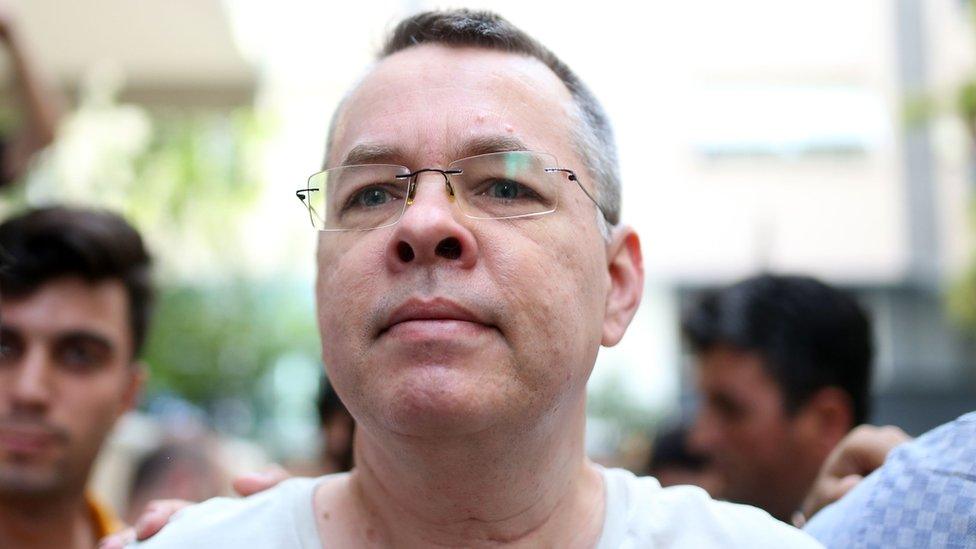
- Published29 June 2018
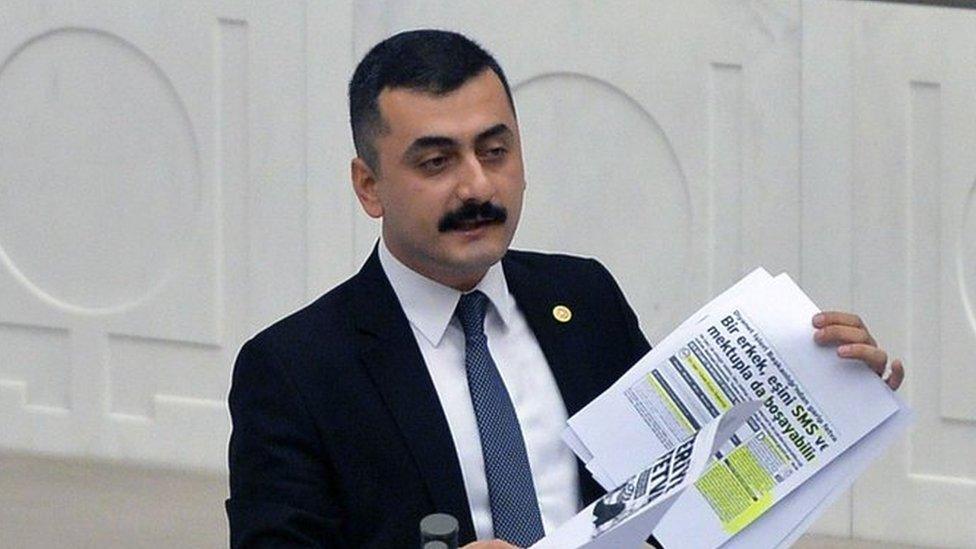
- Published6 July 2017
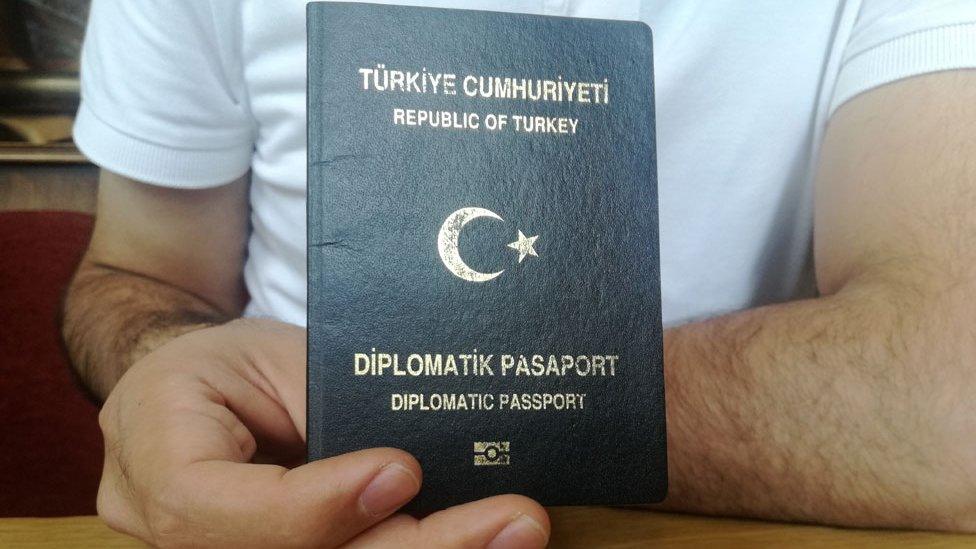
- Published29 July 2016
